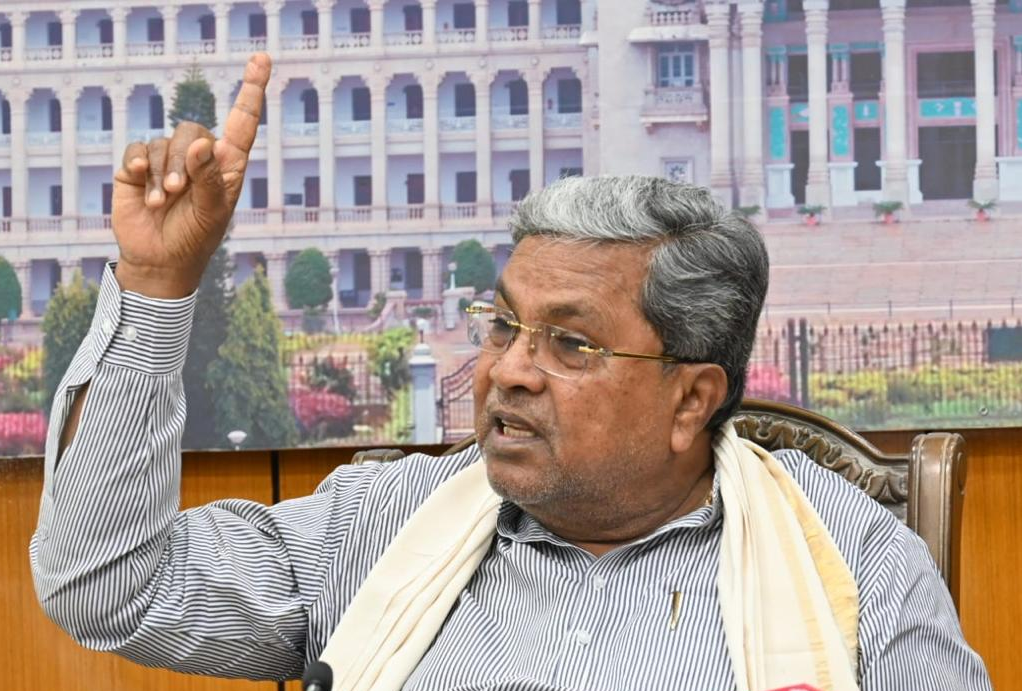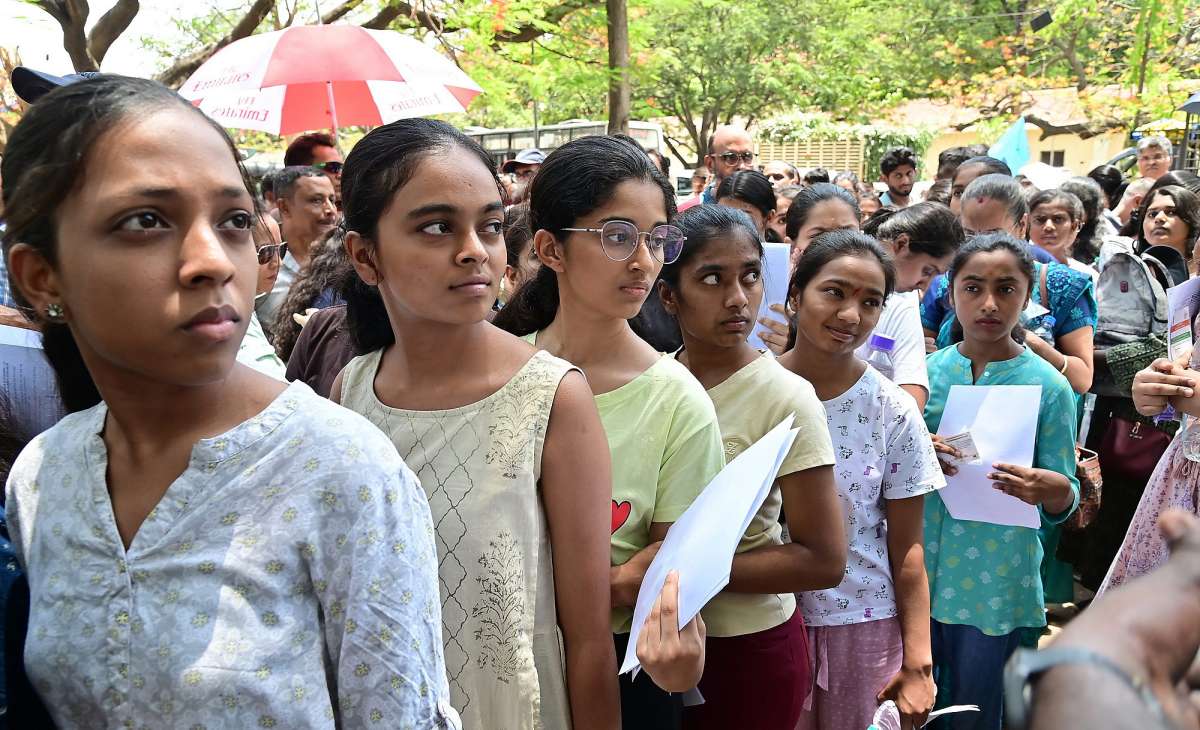The State Governments shall be involved in evolving the National Policy on GM crops, court directed…reports Asian Lite News
Supreme Court on Tuesday directed the Centre to evolve a National Policy with regard to GM crops in the realm of research, cultivation, trade and commerce in the country, but split on the issue of granting conditional approval for environmental release of DMH-11.
A bench of justices, BV Nagarathna and Sanjay Karol, disagreed with each other on aspects of the environmental release of genetically modified mustard, but they agreed to give directions to the Centre to evolve a National Policy with regard to GM crops in the realm of research, cultivation, trade and commerce in the country.
“The said National Policy shall be formulated in consultation with all stakeholders, such as, experts in the field of agriculture, biotechnology, State Governments, representatives of the farmers, etc. The National Policy to be formulated shall be given due publicity,” the court said.
For the said purpose, the MoEF&CC shall conduct a national consultation, preferably within the next four months, with the aim of formulating the National Policy on GM crops, the bench ruled.
The State Governments shall be involved in evolving the National Policy on GM crops, it further directed.
“Respondent – Union of India must ensure that all credentials and past records of any expert who participates in the decision-making process should be scrupulously verified and conflict of interest, if any, should be declared and suitably mitigated by ensuring representation to wide range of interests.
Rules in this regard may be formulated having a statutory force,” the top court said.
In the matter of importing GM food and more particularly GM edible oil, the respondent shall comply with the requirements of Section 23 of FSSA, 2006, which deals with the packaging and labelling of foods, the top court said.
“Having regard to the difference of opinion expressed by us on the decision of the GEAC and MoEF granting conditional approval for environmental release of DMH-11, the Registry shall place the matter before Hon’ble the Chief Justice of India for constituting an appropriate Bench to consider the said aspect afresh,” the court said.
Justice Nagarathna ruled that the approval for environmental release of transgenic mustard hybrid DMH-11 violate the precautionary principle inasmuch as there has been no determination made, as to, whether transgenic mustard hybrid DMH-11 is an HT crop and if so, the nature of risk that would be caused by the said plant to the environment including other plants as well as to human beings and animals.
Expressing dissent, Justice Sanjay Karol held that the decision of the GEAC to grant conditional approval is not vitiated by non-application of mind or any other principle of law, on part of the body, which itself is an expert body.
According to Justice Nagarathna, “the recommendations of GEAC dated October 18, 2022, as well as the decision taken by the respondent Union of India on October 25, 2022, with regard to approving environmental release of transgenic mustard hybrid DMH-11 on the application made by the applicant, namely, CGMCP, University of Delhi (South Campus’), are vitiated and hence, they are liable to be quashed and are quashed.”
“I further observe that the recommendation of the Expert Committee constituted by the GEAC in the year 2022 is of no consequence and not binding,” Justice Nagarathna said.
But Justice Sanjay Karol opined that the composition of the GEAC is in accordance with the Rules.
“Judicial review into the decision-making of all bodies concerned with GMOs is possible. The question of a ban on Ht crops is not warranted in view of the precautionary principle and it is a decision squarely within the domain of policy,” Justice Karol said.
“The composition of the GEAC is in accordance with the Rules, to which the challenge of constitutionality, has failed, and in the absence of any change in the Rules, no fault can be found with the same,” Justice Karol said.
“The decision of the GEAC to grant conditional approval is not vitiated by non-application of mind or any other principle of law, on part of the body, which itself is an expert body,” Justice Sanjay Karol said.
Various petitions were moved in the Supreme Court challenging the Union Environment Ministry’s decision to grant approval for commercial cultivation of Genetically Modified (GM) mustard.
In an affidavit filed earlier by Centre, the govt submitted that the Union of India is committed to increasing farm productivity and the income of farmers through development of low-input- high-output agriculture and make the country self-sufficient in edible oil and grain legumes.
To achieve this objective, several nations around the world have safely employed genetic engineering (GE) technologies. To safely encourage this endeavour in India, an elaborate statutory scheme exists to ensure effective regulatory review for the research, development and commercial use of GE technologies, as per the affidavit filed by Centre.
Approximately 55-60 per cent of edible oil in India is imported. Strengthening of plant breeding programmes, including use of new genetic technologies such as GE Technology, is critical for meeting emerging challenges in Indian agriculture and ensuring food security while reducing foreign dependency, the Centre has said.
Centre had submitted that issues raised by the petitioners fall within the domain of the executive, aided by scientific and other technical experts and the research, development and use of genetic engineering technologies is a highly technical matter guided by views that emerge from scientific consensus among subject experts. As such, it is most humbly submitted that the inquiry of this Court may be limited to whether there is an adequate regulatory mechanism in place governing this field and whether there has been material compliance with the same, the union government had submitted.
Centre had also said that the controversy raised by the Petitioners concerns a conditional approval made to the CGMCP for environmental release of transgenic mustard hybrid DMH-11 and its parental lines bn 3.6 and modbs 2.99 containing barnase, barstar and bar genes prior to commercial release. This conditional approval has been made after a long and exhaustive regulatory review process which commenced as far back as in 2010.
It is to be noted that this approval of environmental release prior to commercial release is for the purpose of undertaking seed production and testing of hybrid of DMH-11 and developing new parental lines and hybrids under the supervision of Indian Council for Agricultural Research (ICAR). As such, this conditional approval pertains to an environmental release prior to commercial release and is subject to necessary regulatory and technical oversight, the government has said. (ANI)
ALSO READ: Congress CMs to boycott NITI Aayog meet














